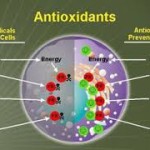Safer Alternatives to Aspirin for Prevention of Heart Attack and Stroke
The recent research into Nitric Oxide (NO) which the human body can create out of the essential amino acid arginine demonstrates that arginine, like aspirin and many other substances, can act as a very potent blood anticoagulant. Thus arginine, like aspirin and other substances, may prevent Myocardial Infarction (MI) AKA heart attack. Its also a natural substitute for Viagra (at a significant cost savings).
L-Arginine, an amino acid, is essential to our diet and required for life, has no known toxicity. Arginine has been shown to stimulate the body’s production of Human Growth Hormone (HGH) by the pituitary gland. It increases the body’s ability to produce Nitric Oxide when needed, and restores sexual function in impotent men. Studies have shown that oral arginine boosts immunity, fights cancer, promotes healing, protects and detoxifies the liver, improves thymus function, and enhances male fertility.
Aspirin can decrease risk of heart attack but may increase the odds of another, often fatal condition: hemorrhagic stroke, that is, unchecked bleeding into the brain. This kind of stroke is a prime example of where you need some protective blood clotting, but the anticoagulants have turned of the capacity to do so. About 90% of strokes are thrombotic strokes, blood clots in blood vessels in the brain.
Although aspirin apparently reduces the incidence of blood clots that lead to heart attack, there are much safer alternatives that work equally well or better.
Vitamin E at 400 iu a day. Vitamin B6 at over 40 mg day. Vitamin B6 at over 40 Mg. Fish oil. From the University of Wisconsin, comes a report that purple grape juice at 10 oz. a day will reduce PAI better than aspirin. It has been suggested that gamma linolenic acid in evening primrose oil will reduce PAI better than anything else. Also the oils of onion and garlic will reduce PAI. Ground ginger also is greatly effective in reducing PAI and like aspirin, it will reduce pain. It is highly anti-inflammatory.
Arginine Derived NO Mediates Platelet Adhesiveness
One of the great discoveries stemming from the recent NO research is that the amino acid arginine may share an ability to prevent blood clots with aspirin, without any known risks. Scientists now think that NO derived from arginine regulates whether or not blood platelets clump together. If platelets were always clumping, The entire circulatory system would grind to a sludgy halt. Whenever a blood vessel suffers an injury, platelets clump together blocking blood from seeping out of the artery until the damage can be repaired. Clumps or clots that block coronary arteries can cause a heart attack. Something has to trigger clumping when it’s called for, while inhibiting it when there is no need. It turns out that a number of blood-borne chemicals are released when an injury occurs that can alter electrical charges, and these chemicals determine whether or not platelets will repel or attract. According to Fried and Merrill, nature’s elegant solution for regulating whether platelet’s clump relies on the free radical Nitric Oxide (NO) made available in the body from arginine. [2]
“The good news is that researchers have found another “blood thinning” approach that is equally effective in controlling platelet aggregation, but without the side-effects of conventional anticoagulants from aspirin to leech saliva.
Researchers now say that supplemental arginine can also help the hypertensive patient’s remaining undamaged endothelial cells produce additional NO to keep arteries open and to prevent platelets from clumping and sticking to vessel walls. In 1994, researchers at the Hanover Medical School in Germany reported that intravenous arginine resulted in a 33 percent decrease in platelet aggregation – very impressive results. Moreover, the researchers concluded that arginine inhibits platelet aggregation specifically “by enhancing nitric oxide formation.” [2]
In Theory, Aspirin may Aggravate Atherosclerosis
According to the Linus Pauling/Matthias Rath Unified Theory of cardiovascular disease, the primary cause of heart disease is a vitamin C deficiency. This deficiency leads to an inability to manufacture sufficient collagen, which causes blood vessel weakness and instability. Collagen is a basic animal protein that provides structural integrity analogous to the function of cellulose in plants. Blood vessel instability from a lack of collagen leads to lesions or wounds in the arterial wall, especially where blood pressure is high and mechanical stresses are great. Plaque forms as a healing response to these wounds.
It has long been known that taking aspirin increases one’s requirement for vitamin C. Vitamin C molecules are used up detoxifying the body, so taking aspirin may lead to lower blood and tissue levels of vitamin C. According to Irwin Stone in 1976:
Certain drugs, such as aspirin, cortisone, and other anti-inflammatory agents, and cinchophen, are known to provoke ulcers and gastric hemorrhage. This is especially the case when a deficiency of ascorbic acid [vitamin C] is present. In animal experiments, the administration of ascorbic acid along with the toxic drug reduced the incidence of peptic ulcer and gastric hemorrhage to such an extent that it prompted one author (Aron) to suggest, “Therefore it would seem judicious in human therapeutics to include ascorbic acid in every prescription for an anti-inflammatory drug”[6].
Aspirin’s ability to dissolve human tissues would seem to make this substance contraindicated in atherosclerotic patients. If Pauling and Rath are correct and the lack of vitamin C causes heart disease, and if aspirin can cause blood vessel lesions, and finally, if the body uses its vitamin C stores to “fight” the toxic effects of aspirin, then taking aspirin may be the last thing a heart patient should do.
Arginine May be the Best Alternative
Most authorities now accept the proposition that heart attack is not generally a problem of arterial occlusion; rather MI is a problem of blockage. The problem with occlusion is that blockages are more likely in arteries narrowed by atherosclerosis. When platelet adhesiveness increases, the risk of heart attack rises. Nitric Oxide causes arteries to dilate and blood pressure to drop. Interestingly, the research shows that atherosclerosis interferes with the ability of endothelial cells to make NO, so clotting is more likely when atherosclerotic plaque is present. If a blood clot is the reason for the blockage, thinning the blood with an anti-coagulating agent may be of significant value. The discovery that NO derived from arginine regulates blood coagulation at the platelet level is important. Arginine has been shown to have the same anti-clotting ability as aspirin, but not continuously, only when needed, i.e., when chemicals associated with injury are released into the blood stream. Aspirin’s health risk is that this substance may unconditionally prevent blood coagulation, even when clotting is called for, e.g., to prevent a stroke. Furthermore, aspirin’s known characteristic of dissolving tissue may not be limited to the stomach. If aspirin causes arterial lesions, then it would be a contributing factor in atherosclerosis.
The Final Word from Linus Pauling
While rethinking your daily aspirin, please consider these remarks made by the late chemist and medical researcher Linus Pauling writing in HOW TO LIVE LONGER AND FEEL BETTER:
“It is drugs, especially the analgesics and antipyretics such as aspirin, that are responsible for most of the five thousand deaths by poisoning that occur each year in the United States. Of that mournful total about twenty-five hundred are children. About four hundred of these children die each year of poisoning by aspirin (acetylsalicylic acid) and some other salicylate. Aspirin and similar drugs are sold openly, without prescription. They are considered to be exceptionally safe substances. The fatal dose is 0.4 to 0.5 gm per kilogram body weight: that is 5 to 10 gm for a child, 20 to 30 g for an adult.”
“Aspirin has been in use as a nonprescription drug, sold casually over the counter, for more than a century before the physiological basis of its pain killing and fever-reducing action was discovered in 1971. Then it was found that aspirin acts upon a central hormonal control system in the body. If it were now coming on to the market from a pharmaceutical laboratory, it would be surely placed under the constraint of prescription.
“Some people show a severe sensitivity to aspirin, such that a decrease in circulation of the blood and difficulty in breathing follow the ingestion of 0.3 g to 1 g (one to three tablets.)
“The symptoms of mild aspirin poisoning are burning pain in the mouth, throat and abdomen. Difficult in breathing, lethargy, vomiting, ringing in the ears, and dizziness. More severe poisoning leads to delirium, fever, sweating, incoordination, coma, convulsions, cyanosis (blueness of the skin), failure of kidney function, respiratory failure, and death.
“Aspirin, like other salicylates, has the property than in concentrated solution it can attack and dissolve tissues. An aspirin in the stomach may attach the stomach wall and cause the development of a bleeding ulcer.
“The U. S. Centers for Disease Control have reported that if children and teenagers suffering from influenza or chicken pox are given aspirin they have a fifteen to twenty-five times greater chance of developing Reye’s syndrome, an acute encelphalopathy and fatty degeneration of the viscera, causing death in about 40 percent of the patients.” [2]
Should you decide, in consultation with your physician, to replace your daily aspirin with 3-6 grams of oral arginine, you may notice some other interesting effects as well. One effect in particular may negate the need for men to spend upwards of $10 on a Viagra pill.







Leave a Reply